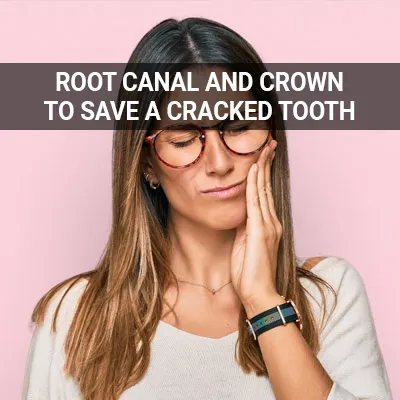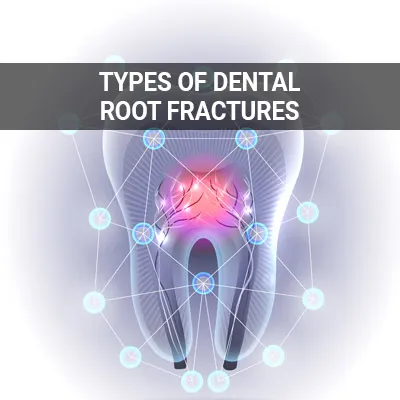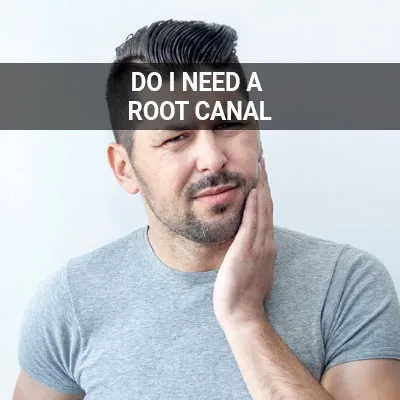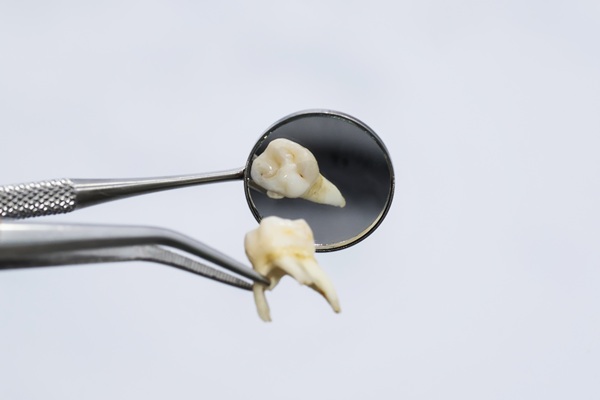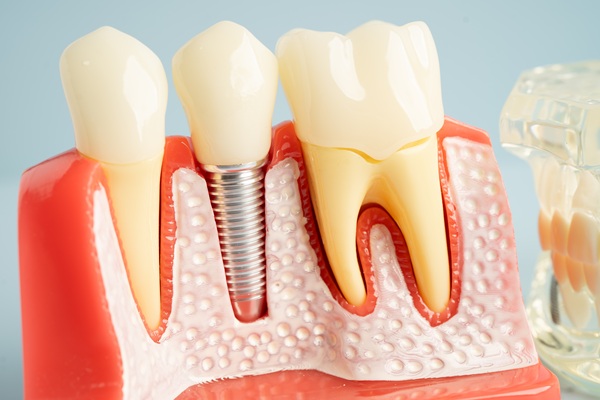The Truth Behind Root Canals Brooklyn, NY
Root canals are one of the most common dental procedures. A root canal treatment is when the dentist removes inflamed or infected pulp from the tooth center, cleans and disinfects the remaining space, and then fills and seals it. This procedure eliminates bacteria from the affected area, prevents reinfection, and preserves your natural tooth.
Root canals are available at Nostrand Dental and the surrounding area. Chances are you have heard a lot of misconceptions about the procedure. Our staff can provide the truth behind root canals—call 718-513-9685 to schedule a consultation.
When a Root Canal Is Needed
Root canals are a fairly straightforward procedure that repair and protect badly decayed or infected teeth. The pulp of the tooth, which contains the nerves and blood vessels, can become irritated and infected for many reasons. These include deep decay, repeated dental procedures, large fillings, a chip or crack, or facial trauma.
Some of the symptoms that indicate a need for a root canal include:
- Sensitivity to hot or cold foods and liquids
- Severe discomfort while chewing or biting
- Small, pimple-like irritations on the gums
- Swollen or tender gums
Patients who are experiencing any of these symptoms will want to make an appointment to see our dentist. The more time goes by, the more likely the tissue surrounding the tooth will get infected — increasing the chances that the tooth may have to get extracted. However, there is no need to worry. Getting a root canal is no worse than getting a filling and is effective.
“Root canals are a fairly straightforward procedure that repair and protect badly decayed or infected teeth.”
A Safe and Common Procedure
Root canals happen more often than you think. According to the American Association of Endodontists, more than 15 million of them were performed from 2005 to 2006. That breaks down to 41,000 procedures performed in the United States every day. Root canals eliminate bacteria from the tooth and ultimately save it from needing to be removed.
Often, the procedure allows patients to keep their natural teeth for a lifetime. Despite the frequent misconceptions, root canals are low-risk and can be compared to a routine cavity filling. Thanks to advancements in dental techniques and technologies, root canals yield successful outcomes with fewer complications.
“Root canals are more common than you think.”
Misinformation About Root Canals
Research shows as many as 15% of people avoid having dental procedures such as root canals every year due to several common misconceptions. Even though most people would rather avoid these procedures, root canals present a much better option than a tooth extraction. Let us debunk some of the myths about root canals.
Myth #1: It is Extremely Painful
According to a survey by the American Association of Endodontists, 67% of Americans say their fear of pain is what keeps them from having a root canal. Thanks to modern dental technology, a patient getting a root canal will not experience any more pain than a filling. The infection in the tooth is likely causing more pain, which the root canal can relieve. While there will be some discomfort post-procedure, our dentist can manage it.
Myth #2: A Root Canal Will Make Me Sick
Unfortunately, many discussions online claim that getting a root canal will increase one's risk for other health issues, such as cancer, in the future. That is not true. This claim came out of poorly designed research done more than 100 years ago. Researchers have confirmed that there is no valid evidence linking root canals to any other diseases.
Myth #3: It is Better to Just Remove the Tooth
When choosing between saving a tooth and having it removed, always opt for preserving the natural tooth. No dental implant can match the look or functionality of a natural tooth. If a root canal gives a patient a chance to save the natural tooth, they should strongly consider it.
“Thanks to modern dental technology, a patient getting a root canal will not experience any more pain than a filling.”
Check out what others are saying about our dental services on Yelp: The Truth Behind Root Canals in Brooklyn, NY
Rare Complications
While rare, some complications may present themselves after a root canal procedure. If the pain goes away but then returns, patients will want to schedule an exam. A new infection can take hold if a canal got missed in the roots, a crack in the tooth root went undetected, or sealing material broke down over time. Other complications include teeth breaking if a crown was not placed in a timely fashion, root fracture from decay, or numbness from the material used to fill the root canal leaking into other areas of the tooth.
Sometimes, another root canal can fix the problem or need a root-end resection procedure. Always remember to follow all of the post-procedure instructions provided by our dentist to heal quickly. Patients who start experiencing any complications should call our office to schedule an appointment.
“While they are rare, there can be some complications after a root canal procedure.”
Questions Answered on This Page
Q. What are the pros and cons of root canals?
Q. When is a root canal needed?
Q. Are root canals a safe and common procedure?
Q. What is common misinformation about root canals?
Q. Are there rare complications associated with root canals?
People Also Ask
Q. What is an alternative to root canal treatment?
Q. When are root scaling and root planing necessary?
Q. What is the difference between endodontists and dentists?
Pros and Cons of Root Canals
Many of the advantages of undergoing root canal treatment are apparent. These include pain relief, stopping the spread of infection, curing dental decay, and preventing further damage to the tooth pulp. By preserving the tooth, root canal treatments prevent unnecessary tooth extraction and balance the patient's bite. They also protect the surrounding teeth from infection and strain. When properly cared for, root canal treatment results can last for a lifetime.
However, there are some possible disadvantages as well. Still, these are typically necessary trade-offs. For example, the treated tooth may not be as strong after the procedure. The doctor can address this by capping the tooth with a crown for added protection. Patients may also be at risk for discomfort, toothache, or reinfection. The doctor may also miss any hidden roots or canals, necessitating retreatment in the future. Choosing the right endodontist and following all the doctor's instructions can help minimize the chances of any complications.
“When properly cared for, root canal treatment results can last for a lifetime.”
Frequently Asked Questions
Q. When would I need a root canal?
A. Root canals can be necessary when an infection in your tooth reaches the tooth's nerves and causes extensive decay. A bad crack or broken tooth can also require a root canal. Signs you may need a root canal include extreme tooth discomfort while chewing and sensitivity to hot and cold foods and liquids.
Q. Are root canals painful?
A. Several myths surround root canals, and pain is one of them. A root canal is no more painful than having a cavity filled. Our dentist will help you manage any pain during and after the procedure.
Q. Can I have another procedure other than a root canal?
A. When it comes to saving your natural tooth from infection or decay, a root canal is the preferred option. The only other viable alternative is tooth extraction. Dentists recommend attempting to save your natural tooth before choosing extraction.
Q. What can I do to avoid root canals in the future?
A. To avoid root canals in the future, practice good oral hygiene along with scheduling regular dental checkups and cleanings. Also, limit sugary foods to help protect your teeth from decay. If you play contact sports, wear a custom-made mouthguard to avoid the risk of teeth injury.
Endodontic Terminology
Learn More Today
Root canal treatments can make the difference between preserving or losing your teeth. We at Nostrand Dental can help. Call us today at 718-513-9685 to schedule an appointment and learn more.
Helpful Related Links
- American Dental Association (ADA). Glossary of Dental Clinical Terms. 2024
- American Academy of Cosmetic Dentistry® (AACD). Home Page. 2024
- WebMD. WebMD’s Oral Care Guide. 2024
About our business, license, and website security
- Nostrand Dental was established in 1998.
- We accept the following payment methods: Cash, CareCredit, Check, Discover, MasterCard, and Visa
- We serve patients from the following counties: Kings County, New York County, Richmond County, Queens County, and Nassau County
- We serve patients from the following cities: Brooklyn, Manhattan, Queens, Staten Island, and Long Island
- NY (License #46702). View License Information and Specifics
- National Provider Identifier Database (1457434540). View NPI Registry Information
- Norton Safe Web. View Details
- Trend Micro Site Safety Center. View Details
Back to top of The Truth Behind Root Canals



